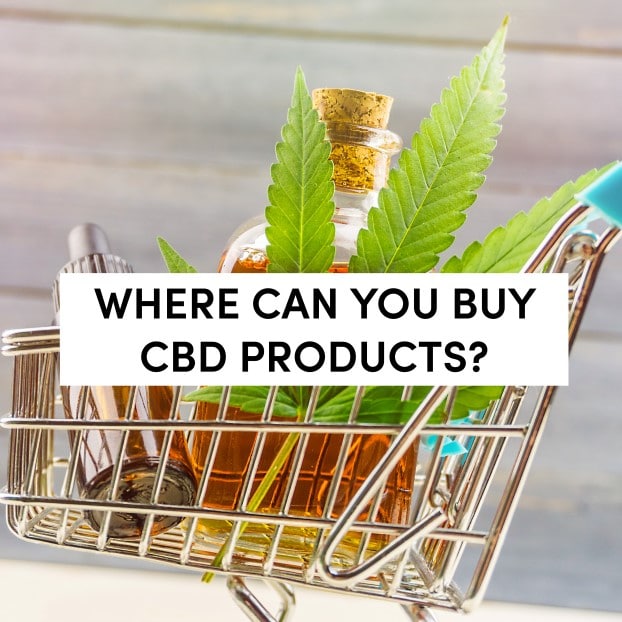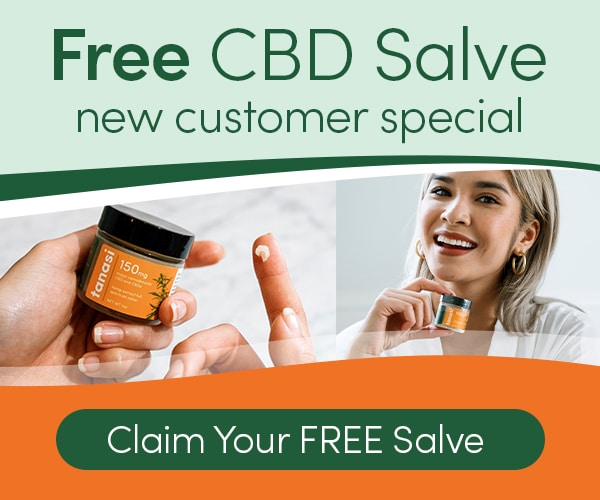Do You Need A License to Sell CBD?

Posted on May 7th, 2021
Hemp-derived CBD contains less than 0.3% of THC and is legal. Products that are over 0.3% THC are derived from marijuana. That is the one thing you must have clear when it comes to CBD. As long as the THC remains at or below that legal limit, the product is federally legal. Now, when it comes to just how legal it is individually in each state of the union, that’s another history. Each state has the right to impose their own CBD laws as they see fit or can opt to adopt the federal law. Whichever the case, a question always pops up once the legality is clear for someone looking to retail: ‘do you need a license to sell CBD?’
Well, do you? Let’s learn just how much of an easy or complex process it is to become able to sell CBD in the US.
Do You Need A License to Sell CBD Really?
It’s important to first understand that the sales of CBD are dependent upon whether or not the CBD comes from hemp or marijuana. Both of those plants are different varieties of cannabis plants; the main difference when it comes to CBD is their THC content. THC is the component in cannabis that gets you high, thus, the reason why authorities are wary of it. CBD derived from hemp have very little THC, as does the hemp plant itself; the opposite is true for marijuana and CBD coming from it. Thus, CBD derived from hemp is the only CBD you can legally sell except in the states that allow medical marijuana, where marijuana-derived CBD might be available.
What Are Cannabinoids?
Cannabinoids are compounds found in cannabis. The most common cannabinoids present within the plant are cannabidiol, or CBD, and tetrahydrocannabinol, or THC. The latter it’s the one that gets you high, while the former only has only therapeutical benefits waiting for you. The cannabis plant also has well over 113 cannabinoids that exhibit a variety of effects.
What Is CBD?
The acronym CBD stands for cannabidiol. Although known by researchers for a long time, it is only now that the compound skyrocketed into popularity. The reason for that is twofold; first, it has very convenient therapeutic benefits; second, the 2018 farm bill made it federally legal at last.
Where Does CBD Come From?
Marijuana and hemp are so closely related that many people can’t even begin to tell them apart. And for a good reason, they are both different varieties of the same plant: cannabis. However, there are subtle differences between hemp and cannabis in addition to the levels of THC.
Practically speaking, manufacturers can extract CBD from both marijuana and hemp. The reason they do so from hemp predominantly is that hemp naturally has low levels of THC. Were they to extract CBD from marijuana which has high THC levels, the THC of the final product would surpass the legal limit. Thus, rendering it illegal in most states except those with medical marijuana programs and only available for participants.
Hemp, A Closer Look
Hemp has long been using in the United States to make products such as ropes. It has many uses and is frequently goes in the design and creation of a variety of products. The Hemp plant is a variety of Cannabis Sativa, which mankind used for manufacturing purposes for thousands of years. There are many products derived from hemp, including hemp rope, CBD products, and more. The Hemp plant is a hardy plant that thrives in most climates. Hemp is a close cousin to the marijuana plant, and the untrained eye may have a difficult time determining telling them apart. Hemp grows almost as quickly as bamboo. For this reason, many grow hemp to help generate an income.
Is Hemp the Same As Marijuana?
The short answer to this question is “No.” While hemp and marijuana plants are from the same species, they are more like cousins. As cousins, they share some similarities; however, key differences that mostly go unnoticed to the naked eye set them apart. Legally speaking, for a plant to be ‘hemp,’ it must contain less than 0.3% of THC. Meanwhile, marijuana is the one that contains over 0.3% of THC. Manufacturers can derive CBD from both hemp and marijuana plants. However, the levels of THC will determine whether it is legal or not to sell it across the US.
Is Hemp Legal Today?
Today, thanks to the Farm Bill of 2018, hemp is federally legal in all of the United States. Farmers can legally grow it and produce products from it to sell. However, states might adopt their own hemp and CBD laws instead of just accepting the federal law. Thus, check the legality of CBD in whichever state you are planning to buy some.
Why Was Hemp Illegal Previously?
While hemp has many great uses and hemp rope has long been available on the market, it wasn’t always this way. In fact, hemp was previously illegal to grow due to its very classification. Authorities classify it in the same way as they did marijuana as a controlled substance. However, since the two plants have a key difference, it did not really make sense for it to be so. Nonetheless, it took almost 50 years for hemp to get its own legal definition apart from marijuana. It first began with the 2014 farm bill, which allowed to use of hemp for scientific research purposes. The 2018 Farm Bill went on to further allow to growth, process, and sale of hemp legally in the US. Thanks to this legislation, many are now able to grow hemp and earn a living.
Do You Need A License To Grow Hemp?
In many states, hemp and marijuana are both legal; however, that doesn’t mean that you won’t require a license to grow hemp. While marijuana still requires specific permissions and licenses, hemp is now legal to grow under the Farm Bill of 2018. However, the type of license required to, it’s a business license for the specific state or city that where the hemp farm locates. Each city, town, or state, has its own specific regulations to run said business, even if the business is online. It’s important to check with your specific city, town, and state to get to know the specific requirements to apply for, maintain, and renovate said license. Once you got your hemp business licenses, you can grow it, process it, and sell it online or in a brick-and-mortar type store for a profit.
Prior to the 2014 Farm Bill, it was illegal to grow hemp in any form besides for research, and violators face prosecution. Thanks to the 2018 Farm Bill and other legislative changes, it is now legal to grow hemp in all of the United States.
Is Selling CBD Legal?
Do you need a license to sell CBD? While the short answer to this question is “Yes,” it’s a bit more complicated than that. As long as the CBD comes from hemp, it is legal to sell the product. CBD derived from hemp has a level of less than 0.3% of THC. Meanwhile, the CBD derived from the marijuana plant has a level of over 0.3% THC. The latter is the kind of CBD that is fully illegal except for medical marijuana patients.
Per the laws outlined in the 2018 Farm Bill and the legislative changes, it is now legal to sell hemp CBD products. Prior to that point, hemp and CBD were illegal to sell as they classified them alongside marijuana as controlled substances. Once they made an actual legal definition for it, the hemp plant and the marijuana plant now fell under different classifications. Therefore, it was then that it became legal to sell CBD derived from the hemp plant.
2018 Farm Bill
Prior to that point, hemp was one controlled substance, so the federal government prevented the industry from starting. Fast-forward to the 2018 Farm Bill, more legislative changes were introduced, and hemp saw its removal from the Schedule 1 Controlled Substance List. Thus, allowing for CBD to be legal as long as it had less than 0.3% of THC in the product.
To remain in compliance with the Farm Bill of 2018, the FDA would continue to regulate what was legal in the form of hemp-derived CBD products. The FDA would have the final say in regards to whether or not a CBD product was legal for sale on the open market or online. To maintain compliance, hemp-based products would need to gain the seal of approval of the FDA prior to being available for sale.
Today, thanks to the Farm Bill of 2018, CBD is legal to sell in the United States as long as the THC threshold remains at less than 0.3%. The DEA keeps a watchful eye on the products, and it’s not unusual for growers to submit to random testing. However, all of this is to ensure the proper levels of THC in any CBD products. Most CBD products today have prior certification and will have a stamp on the packaging certifying the authenticity of the product.
Do You Need A License to Sell CBD Today?
Finally, to fully answer the question of whether do you need a license to sell CBD? It’s completely legal to sell CBD oils and products today in the United States without any specific CBD-related licenses. However, you still need to get a business license in order to sell, even if you are planning on being an online retailer. Moreover, it’s very likely that would you also need a resellers license to get your supply from whole sellers, which is the case for many CBD shops. The requirements for each state vary for both. Thus, make sure you do your due diligence before applying.
Do You Need A License to Sell CBD? – The Takeaway
A business license is a requirement in order to sell CBD online. There are many products available on the market today that are in full compliance with all of the rules and regulations. Thus, they are fully legal to sell under the 2018 farm bill regulations for hemp derivate products both online and otherwise.




